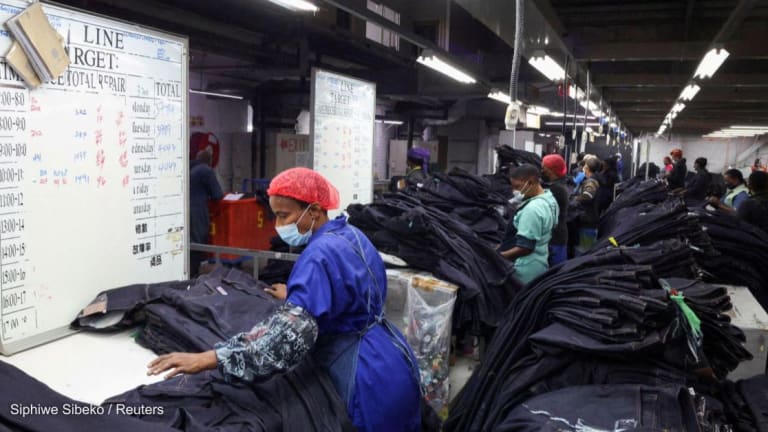
ST. PAUL, Minn. — Latin America’s deep, structural inequality has contributed to the disproportionate health and economic impacts COVID-19 has had on the region, International Monetary Fund Managing Director Kristalina Georgieva said Tuesday.
According to Georgieva, despite the fact that only 8% of the world’s population lives in the region, it has been home to 20% of COVID-19 infections. It has also felt the resulting economic shocks deeper than other regions. IMF expects the world economy to shrink by 4.4% in 2020, with emerging markets shrinking by 3.3%; the economy of Latin America and the Caribbean, however, is expected to shrink by 8%.
“It is still the most unequal region. Why does that matter? Of course it matters from an equality standpoint, but it also matters from a growth standpoint. Inequality of opportunity means that part of society is just not reaching its full potential. That is bad for people. It is bad for the economy as a whole,” Georgieva said, speaking at an event hosted by Council of the Americas on the state of the recovery in Latin America. “There is still quite a lot that can be done to eliminate obstacles for private sector-led growth.”
“The digital transition makes it so clear that those who are high-skilled can do well. Those that are low-skilled ... they suffer.”
— Kristalina Georgieva, managing director, International Monetary FundGeorgieva said that although countries in Latin America and the Caribbean are diverse, there are three main reasons why the region’s economies and health systems have been hit so hard by the pandemic: existing slow growth, the high number of workers in contact-dependent industries, and a lack of investment in human capital.
She said that the region has lacked a “momentum of growth” seen in other parts of the world over the last several decades. In the 1990s, the per capita income in Latin America and the Caribbean was 25% of that in the U.S., while Asia’s per capita income was just 5% of that in the U.S. Today, Georgieva said, Asia’s per capita income has grown to 20% of that in the U.S., while Latin America’s remains at 25%.
“How could that be changed? What can be done so we are addressing these structural impediments to growth?” Georgieva said. “One letter to be watchful of, especially in the region with deep roots of inequality, is a K-shaped recovery: One part of the economy recovers and does wonderfully, and another part stagnates and falls further behind. And that is only fixable with structural policies, with structural reforms.”
Sixty-two percent of IMF financing, totaling $63.5 billion, for pandemic recovery has gone to Latin America and the Caribbean, Georgieva said — a recognition of how severely it has been hit.
Q&A: World Bank Latin America chief on building back better after COVID-19
Now is the time to make much-needed reform to economies in the region, says Carlos Felipe Jaramillo, World Bank vice president for Latin America and the Caribbean.
The pandemic has spurred awareness of the need for more diverse global value chains, which could benefit Latin America and the Caribbean, given the region’s geographic proximity to the U.S. Georgieva said nearshoring does provide an opportunity for the region, but its extent and particular industries remain to be seen. Growing digitalization has shown that a lot of work can be done anywhere at any time, but the Latin American and Caribbean region does have the advantage of sharing time zones with the U.S.
“The digital transition makes it so clear that those who are high-skilled can do well. Those that are low-skilled, that are excluded from the digital economy, they suffer,” Georgieva said.
The region must embrace strategies to build resilience so its economies can withstand further shocks, whether an economic crisis like the Great Recession, another pandemic, or the impacts of climate change, Georgieva said.
“Next, we need to think about how we help countries to come out of this crisis by building the blocks for sustainable and inclusive growth. For us, what we are now discussing is how in our next round of financing we can be a source of support for countries to do this transformation — in other words, create fiscal space so they can invest in taking the turn towards greener and digital and fairer economies,” Georgieva said.
“In Latin America, there is recognition that the crisis is an opportunity. We can do better for the future and I very much welcome this dynamic thinking in the region. What can be done so we can come on the other side in better shape than we entered the crisis?”



